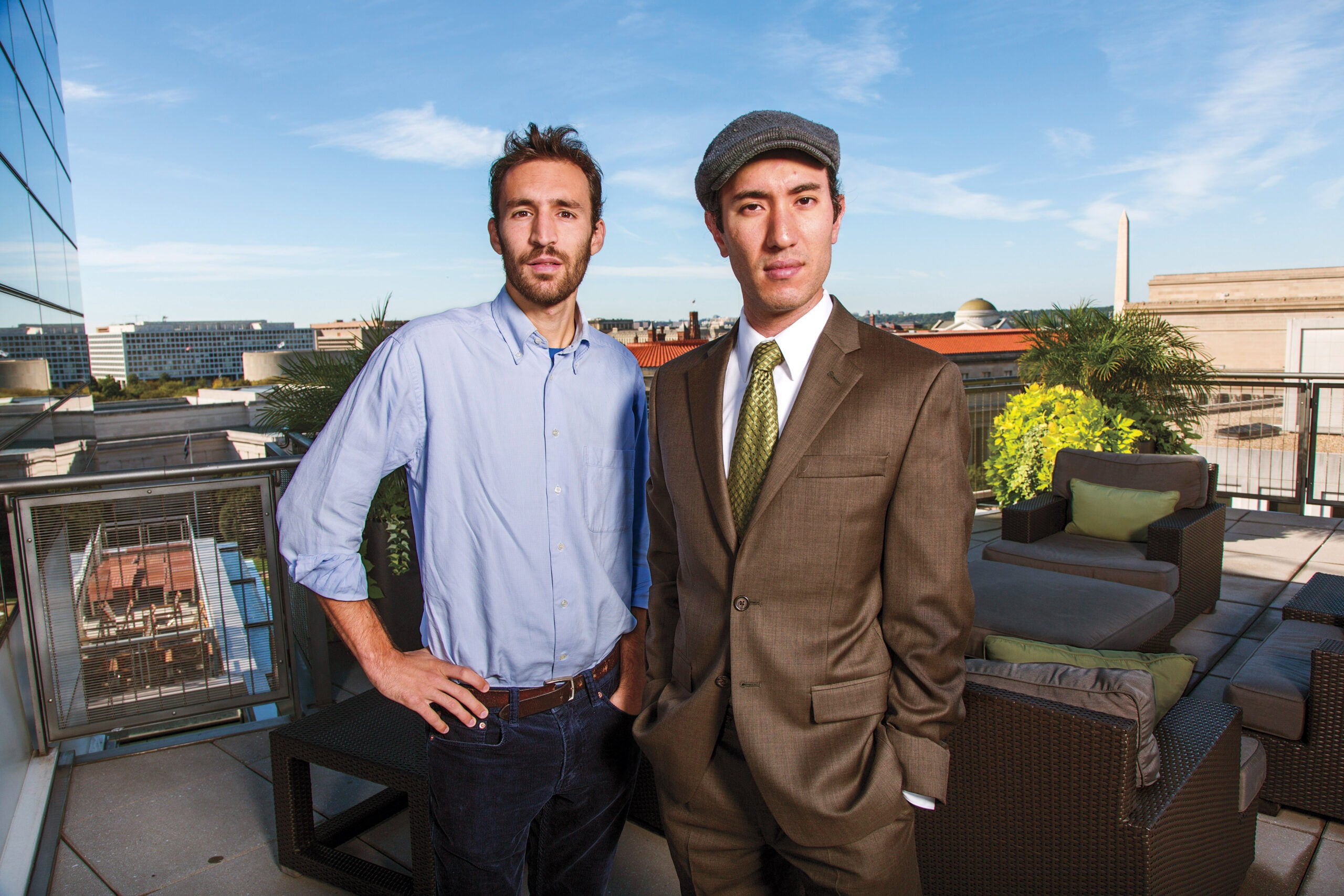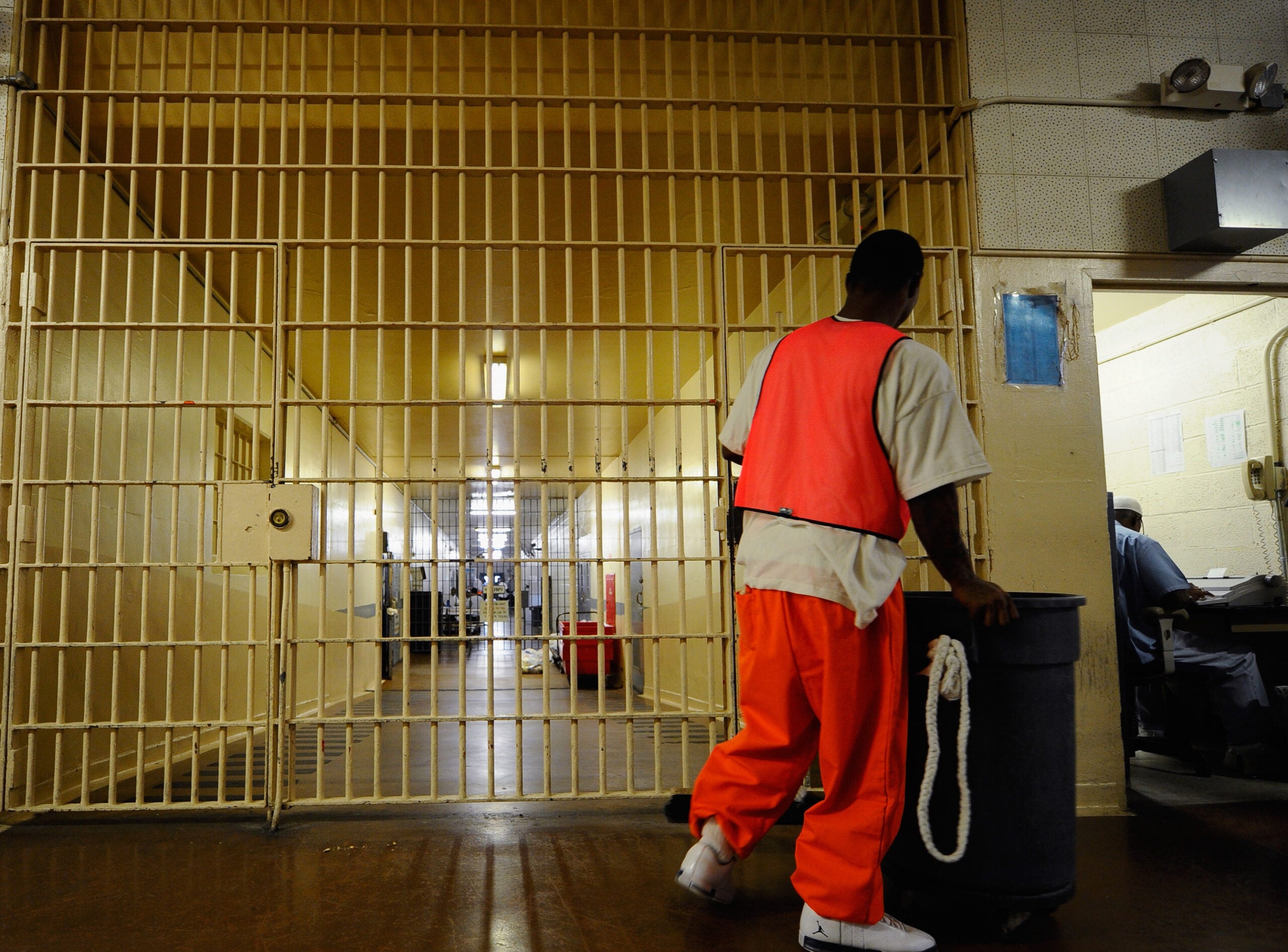Until last month, scores of destitute people—virtually all of them African Americans— languished in the city jail of Montgomery, Ala., for unpaid traffic tickets they couldn’t pay off, sentenced to one day in jail for every $50 they owed. They could earn another $25 credit daily by providing free labor, scrubbing blood and feces off jail floors and cleaning buildings.

But on May 1, a federal judge issued a preliminary injunction barring the imprisonment of three debtors for non-payment of fines, citing a 1983 Supreme Court decision that prohibited imprisonment for debt, in a lawsuit that had been filed on their behalf by Alec Karakatsanis ’08 and Phil Telfeyan ’08, two Harvard Law School graduates who brought the case through Equal Justice Under Law, a nonprofit civil rights firm they launched in March to challenge the profit motive in the criminal justice system.
Soon thereafter, the city of Montgomery released all inmates who were in jail only for non-payment of fines.
Last year, the city of Montgomery reaped $15.9 million from fines and forfeitures through this practice, and the private company it hired to monitor debtors, Judicial Corrections Services, charged people a monthly fee for being on probation, according to the two lawyers.
“The practice has been enormously lucrative for the city and for the private corporation with whom it has contracted to collect these debts,” said Karakatsanis. “It has been devastating for poor people of color in Montgomery” and throughout Alabama and Georgia, he said.
Three plaintiffs in the original suit were freed by the judge’s ruling and dozens of others were later released by the city, which is under court order to prove that it isn’t jailing people because they’re too poor to pay. And the firm has now filed a class action suit opposing the practice. “At the core of it all is the idea that no human being should be caged by her government for being poor,” said Karakatsanis, who was interviewed about the case on NPR in June.
The Washington, D.C.-based firm is also challenging Alabama’s particularly severe sex offender law, passed in 2011, as a violation of the prohibition against ex post facto laws. They say that the new law punishes people who completed their sentences decades ago, making it nearly impossible for them to get jobs or housing. Along with a Montgomery attorney who originally filed the case, Karakatsanis and Telfeyan tried it in federal court in Montgomery in March; the judge’s decision is expected soon.
Last year, Equal Justice Under Law was chosen as the first recipient of the new Public Service Venture Fund Seed Grant Award from Harvard Law School. The Venture Fund invites law students and recent alumni to identify unmet legal needs and develop new initiatives to meet them, and is spearheading social entrepreneurship through “seed grants” for start-up public interest ventures, as well as salary support for fellows undertaking projects at existing organizations. Karakatsanis and Telfeyan are each receiving a $45,000 stipend plus additional funds for expenses of the organization, with expectation of renewal for a second year.
Alexa Shabecoff, assistant dean for public service at Harvard Law School and director of the Bernard Koteen Office of Public Interest Advising (OPIA), who is directing the Fund, said the proposal for funding Equal Justice Under Law was “really compelling,” especially because it was uniquely focused on challenging the profit motive in the criminal justice system. More than many foundations, the Public Service Venture Fund focuses on the people behind the idea, Shabecoff said, “because what we think we do best here at Harvard is graduate spectacular future lawyers and leaders.” Based on their academic and professional accomplishments, and “through the sheer force of their personalities,” the selection committee felt that Karakatsanis and Telfeyan demonstrated exceptional potential, she said.
Before launching the new practice in March, Karakatsanis, who’d also worked as an assistant federal public defender in Alabama, litigated complex criminal and civil cases with the Public Defender Service for the District of Columbia, and Telfeyan was a trial lawyer in the Civil Rights Division of the United States Department of Justice. The two met during their first year of law school, finished as regional semi-finalists in a national moot court competition, won the Williston Negotiation Competition at Harvard together, and also served together on the Harvard Law Review, in the Criminal Justice Institute, and as Harvard Defenders.
While its first two cases are in Alabama, Equal Justice Under Law is currently pursuing cases in California, New York, Florida, and Washington, D.C. “One of our goals is to identify things that have become utterly normalized in our legal system that we think are outrageous and should not be accepted in a system that treats people with equality,” says Karakatsanis.
It’s a matter of enforcing protections the legal system already affords, including constitutional guarantees, they say. “I think all judges and all lawyers enter the profession because they have a sense of justice,” says Telfeyan. “Our goal, especially when dealing with judges, is to remind them of their sense of justice and inspire them to act based on that sense of justice.”
